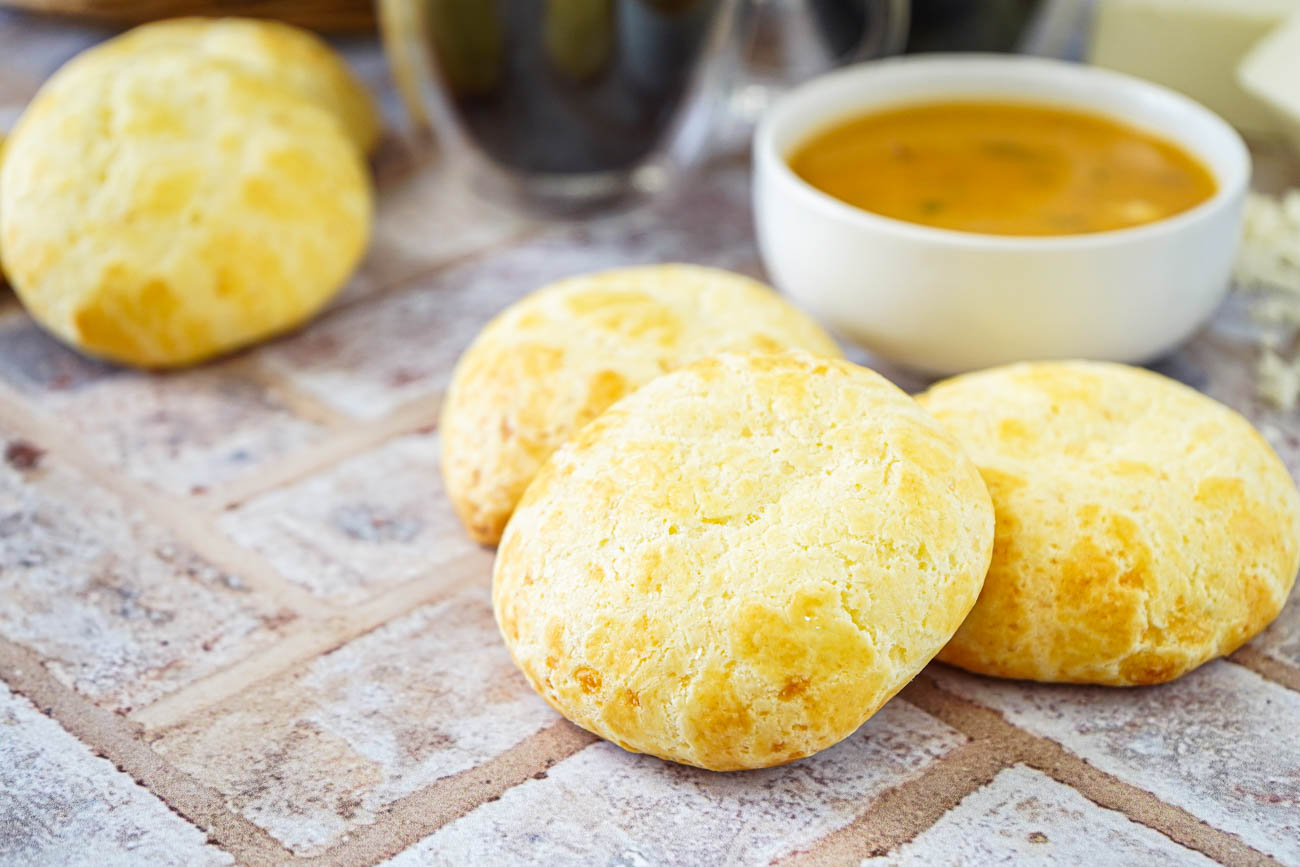Yuca bread is a traditional food staple in many South American countries, particularly in the Amazon region.
Yuca, also known as cassava or manioc, is a root vegetable native to South America.
Yes, yuca bread is gluten-free and it is made from yuca flour, often referred to as “cassava bread” or “tapioca bread,” does not contain gluten.
Gluten is a protein found in wheat, barley, rye, and their derivatives.
Since yuca is not a grain but a tuber, its flour is naturally free of gluten.
This makes yuca bread a suitable choice for people with celiac disease, gluten sensitivity, or those who choose to follow a gluten-free diet for other reasons.
Moreover, yuca bread has a unique texture and flavor, making it a delightful alternative to traditional wheat breads.
History Of Yuca
Yuca, scientifically known as Manihot esculenta, is believed to have originated in South America, particularly in the Brazil-Bolivia border region.
Archaeological evidence indicates that yuca has been cultivated for at least 10,000 years.
Over time, its cultivation spread throughout the tropical regions of the Americas, and after the European contact, it was introduced to Africa and Asia.
Yuca is a perennial shrub, though it’s often cultivated as an annual.
The plant thrives in tropical and subtropical regions where there’s enough warmth and water.
It’s a drought-tolerant plant, which makes it a crucial crop in areas with unpredictable rainfall.
The main product of the yuca plant is its starchy tuberous root, though its leaves are also consumed as a vegetable in some cultures.
Yuca prefers well-draining soils, and since it’s propagated mainly through cuttings, farmers cut stems into sections and plant them directly into the ground.
Health Benefits Of Yuca Bread
Gluten-Free
Yuca bread is naturally gluten-free, making it a suitable choice for individuals with celiac disease, non-celiac gluten sensitivity, or those following a gluten-free diet.
Low Allergenic Potential
For individuals with common food allergies, yuca bread is an excellent choice as it doesn’t contain allergenic components like wheat, soy, or nuts.
Resistant Starch
Yuca contains resistant starch, which is a type of carbohydrate that resists digestion in the small intestine.
It acts as a prebiotic, feeding beneficial gut bacteria, which can promote gut health and potentially aid in digestion.
High In Vitamin C
Yuca is a good source of vitamin C, an antioxidant that supports the immune system, skin health, and wound healing.
Saponins
Yuca contains compounds called saponins, which have antioxidant and anti-inflammatory properties.
These compounds might help reduce oxidative stress and inflammation in the body.
Versatility In Diet
For those looking to diversify their diet and reduce their reliance on traditional grains, yuca bread offers a unique flavor and texture.
Difference Between Yuca Vs. Traditional Grain Breads
Gluten Content
Yuca Bread: Yuca bread is naturally gluten-free. This makes it suitable for individuals with celiac disease or non-celiac gluten sensitivity.
Traditional Grain Breads: Typically contain gluten, which can be problematic for those with gluten-related disorders.
Nutrition
Yuca Bread: High in carbohydrates but lacks the variety of vitamins and minerals found in whole grain breads.
It’s also low in protein and fiber compared to grain breads.
Traditional Grain Breads: Traditional Grain Breads have a broader nutritional profile.
Whole grain varieties are rich in fiber, B vitamins, minerals, and proteins.
Texture & Flavor
Yuca Bread: Yuca bread has a unique texture, often denser and more chewy.
The flavor is neutral, allowing it to pair well with various toppings.
Traditional Grain Breads: Traditional grain breads can range from soft and fluffy to dense and hearty, depending on the grain and preparation method.
The flavor profile can vary, with some grains offering a nutty or sweet taste.
Glycemic Index (GI)
Yuca Bread: Yuca has a high GI, meaning it can cause a rapid spike in blood sugar levels.
Traditional Grain Breads: White bread, made from refined wheat, has a high GI, while whole grain breads generally have a medium to low GI.
Dietary Restrictions And Preferences
Yuca Bread: Suitable for gluten-free, grain-free, and paleo diets.
Traditional Grain Bread: Not suitable for gluten-free or grain-free diets but can be part of vegetarian, vegan, and Mediterranean diets.
Shelf Life
Yuca Bread: Yuca breads have a shorter shelf life due to the absence of preservatives found in many commercial grain breads.
Traditional Grain Bread: Shelf life varies. Preservative-free, artisanal breads might go stale or mold quicker than commercial varieties with added preservatives.
How Does Yuca Bread Taste Differ As Compared To Traditional Wheat Bread?
Yuca bread has a distinct taste and texture compared to traditional wheat bread.
Its flavor is relatively neutral, allowing it to pair well with various toppings.
In terms of texture, yuca bread is often denser and chewy.
It may lack the fluffy and airy quality of yeast-leavened wheat breads, but many people appreciate its unique consistency.
What Are Potential Challenges When Baking With Yuca Or Tapioca Flour?
Baking with yuca or tapioca flour can be different from baking with traditional wheat flour.
These flours lack gluten, which provides structure and elasticity to bread.
Thus, yuca breads might require binders like xanthan gum or eggs to achieve a desirable texture.
Perfecting recipes may require some trial and error, and understanding the unique hydration needs and behavior of these flours during baking.
Does Yuca Bread Naturally Contain Gluten?
No, yuca bread does not contain gluten.
Gluten is a protein found in certain grains like barley, wheat, and rye.
Since yuca is a root vegetable and not a grain, its starch does not have gluten proteins.
This makes yuca bread a suitable choice for individuals with gluten-related disorders or those choosing a gluten-free diet.
Can Yuca Bread Be Consumed By Individuals With Celiac Disease?
Yes, yuca bread is a suitable option for individuals with celiac disease.
Celiac disease is an autoimmune condition where the ingestion of gluten leads to damage in the small intestine.
Yuca bread is inherently gluten-free, so it is safe for celiac patients.
However, it’s essential to ensure that the yuca bread hasn’t been cross-contaminated with gluten during production.
Is Yuca Bread the Same As Tapioca Bread?
While both yuca bread and tapioca bread derive from the same plant, they are not necessarily the same.
Tapioca is the starch extracted from the yuca root, often formed into pearls or used as flour.
Tapioca bread typically refers to bread where this starch is a significant component.
Yuca bread, on the other hand, often uses a broader part of the yuca root, resulting in a different texture and nutritional profile.

